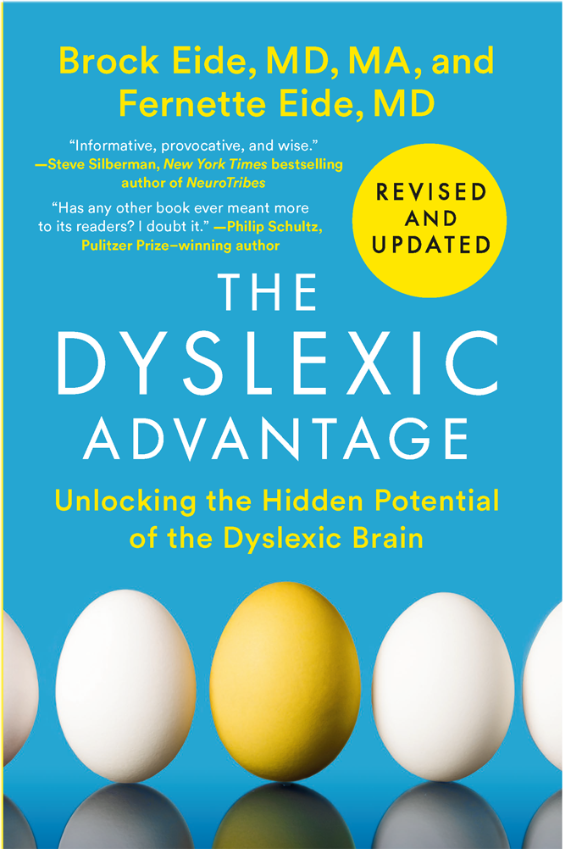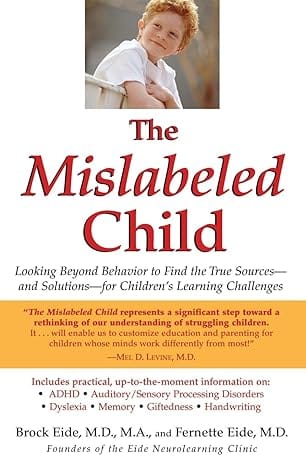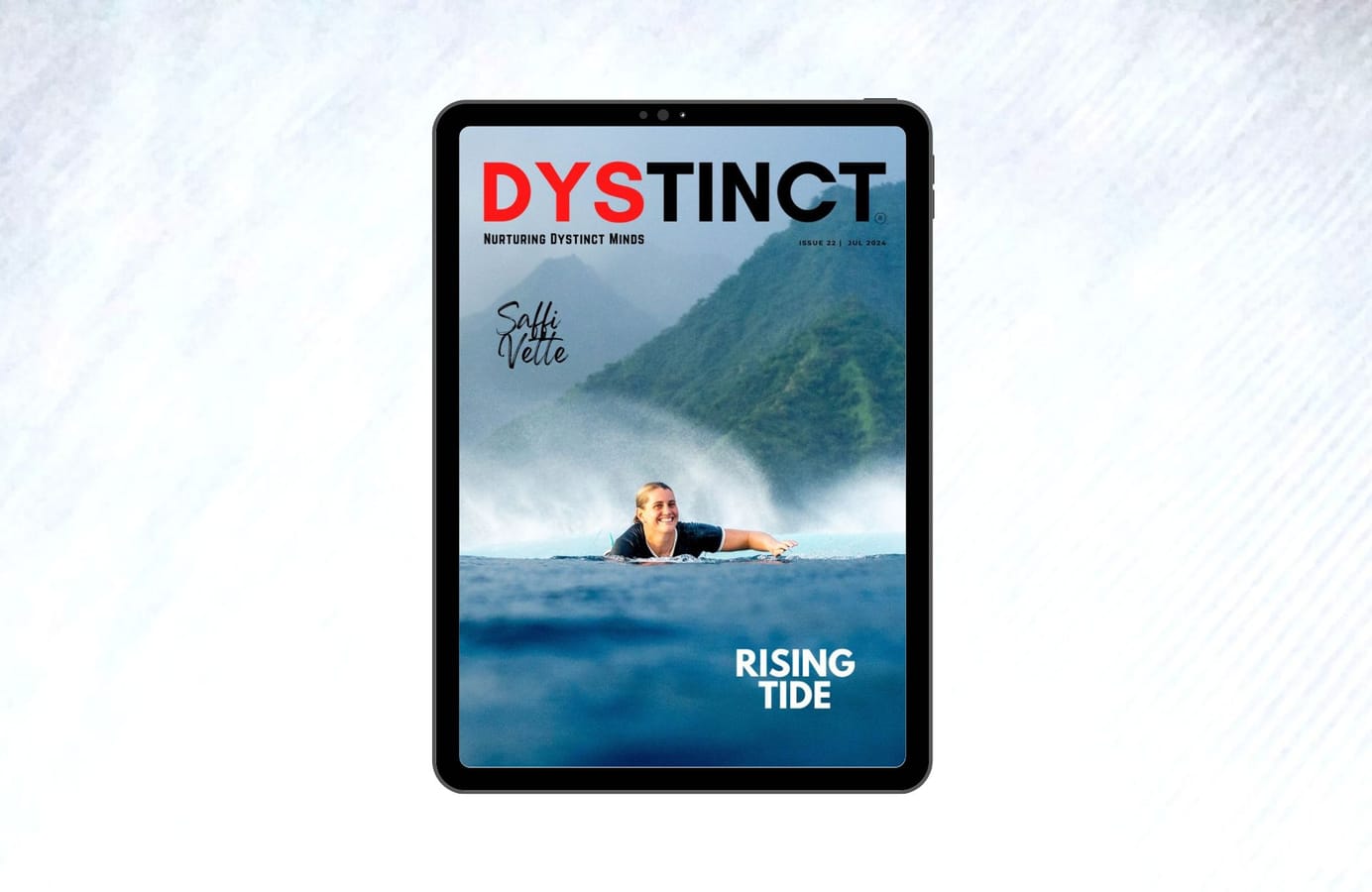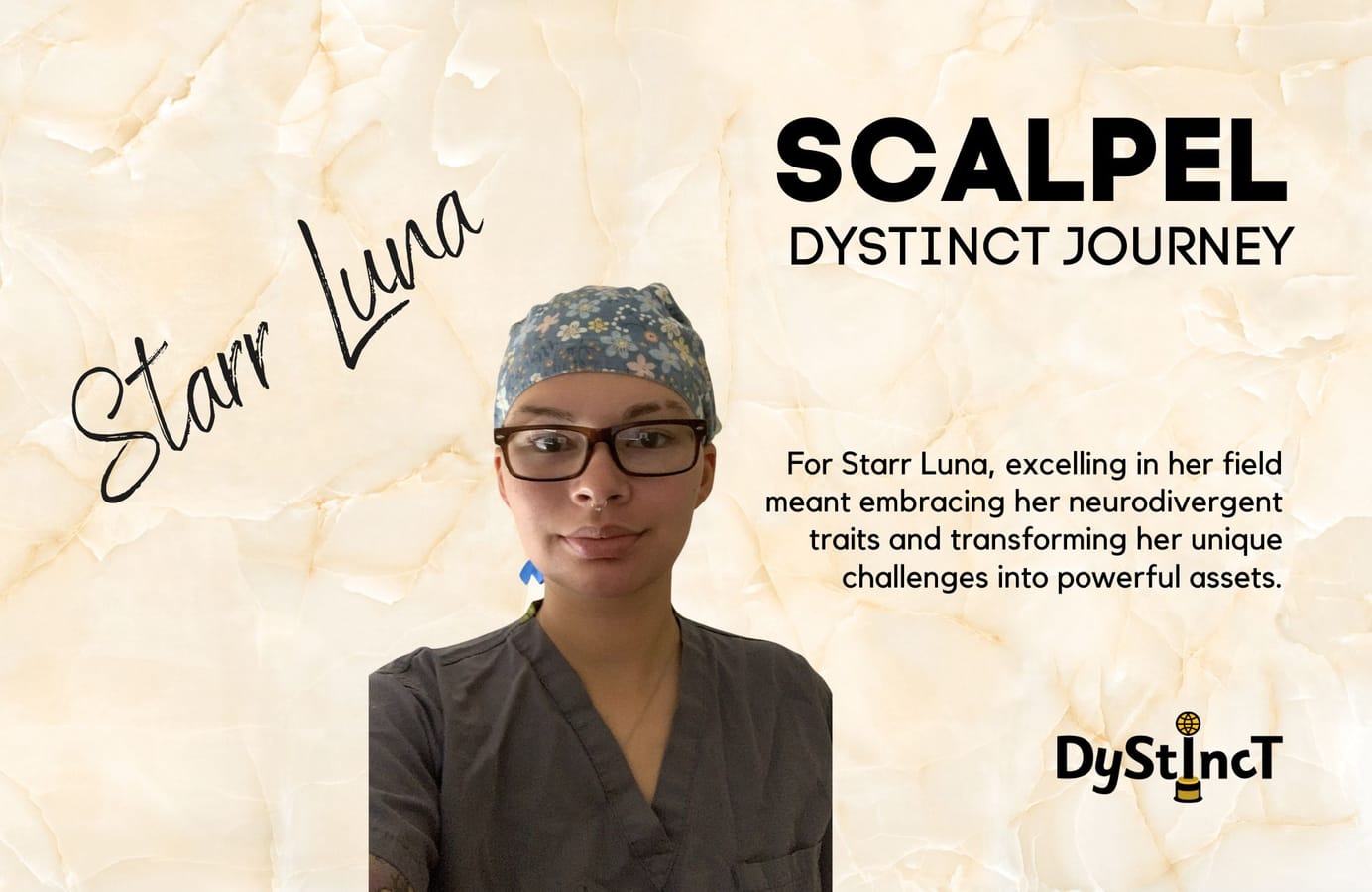
Issue 19: Dystinct Report – Flynn & Blake Eldridge’s Interview with Dr Brock Eide
Dystinct reporters Flynn and Blake Eldridge have a chat with Dr Brock Eide, an international authority on dyslexia and learning differences and co-author of the acclaimed books "The Dyslexic Advantage" and "The Mislabeled Child" about his work and life.
Table of Contents
Dr. Brock Eide, co-founder of Dyslexic Advantage, a non-profit dedicated to reframing dyslexia in terms of its strengths, is a prominent figure in the field. Dyslexic Advantage, under his leadership, plays a leading role in educating parents, teachers, professionals, and the public about dyslexia, emphasizing its advantages in fostering innovation and creative problem-solving. A Phi Beta Kappa graduate of the University of Washington and the University of Washington Medical School, Dr. Eide brings a wealth of expertise. He has served as a consultant to the President's Council of Bioethics and as a visiting lecturer at the Stanford Graduate School of Education. Concurrently, Dr. Eide serves as the CEO of Neurolearning.com, a social purpose corporation dedicated to providing accurate, affordable, and informative dyslexia identification for both children and adults.
Dystinct reporters Flynn and Blake Eldridge have a chat with Brock about his work and life.
The Interview
The Interview
Dystinct reporter Flynn & Ava Eldridge has a chat with Dr Brock Eide.
Excerpts from the Interview
Excerpts from the Interview
What do you do for a living?
Currently, I'm mostly focused on Neuro Learning, which creates dyslexia screening tests. We're hoping to move that into a regular diagnostic test soon. It also provides people with tests that they can use to discover their dyslexia-related strengths. One of the big problems for people with dyslexia is that most of them don't really know that they are dyslexic. So having cheap and available tests that can help them find out is really important. And then, most people who know that they're dyslexic don't understand that there are strengths that are connected with being dyslexic. So, we really want to help people who find out about their dyslexia understand the good parts about it, which we think is really important.
Why did you write the book The Dyslexic Advantage?
My wife and I were working in our clinic to examine and help people who had learning issues of all different kinds. If they were having difficulty in school or if they were having problems at work that dealt with their reading, writing, or ability to communicate, they would come to our clinic and ask us if we could figure out why and help them. We started seeing people with all sorts of learning differences. We saw people with dyslexia, language issues, autism spectrum issues, and attention issues; just anything that impacted learning. Over the first 10 years or so, we became especially interested that when we saw people with dyslexia, we weren't just seeing the same problems again and again. We saw people who were saying things like, "I have trouble sounding out words," "I have trouble figuring out what all those words are," "I'm not a very good speller," and "I read really slowly." - All common problems, but we also noticed that dyslexic people and their families had an unusually high number of things in common that we would call strengths; Certain kinds of creativity and certain kinds of spatial ability. We saw lots of families that were in engineering or architecture or certain kinds of mechanics or building trades that involved spatial talents. We saw people who were involved in activities that required them to be able to think ahead and make predictions about what was going to happen soon because things were changing or required them to make predictions to keep ahead of potential problems that could occur. And we saw people who were really good at telling stories; People that might be involved in, for example, sales or in counselling or other kinds of things where you had to tell stories to people that would help them make sense of the world.
So, when we saw these patterns of talents, we went back to all of the literature that was available from scientists who had studied people with dyslexia. We tried to figure out if there was some basis for the strengths that we were seeing or if other people had noticed similar kinds of things. We found that there were very good reasons to think that the kinds of differences that scientists found in the brains of people with dyslexia would create these kinds of strengths as well as the kind of reading challenges with decoding or problems with spelling and reading speed that people with dyslexia had. And so we felt that dyslexia was like a coin that had two sides. On one side, you have these challenges: problems with reading and spelling and that sort of thing. Then, on the other side were these strengths. They were all coming from the same places in the brain, the same way of organisation in the brain. It seemed pretty obvious to us that if you have 10/15 or 20 per cent of all the people in the world that have a brain that's like this, there are probably so many of them because it does something good, not because it's a broken brain. And so, we thought that this bigger picture was emerging that dyslexia was really a good thing, but that people had just gotten a hold of the wrong end of it and were focused on the things that people with dyslexia struggled with instead of paying attention and noticing the fact that these people were better at other important things than people without dyslexia. And so, we really wanted to try to improve the understanding of dyslexia, the way that teachers thought about their students with dyslexia and the way that people with dyslexia thought about themselves or about their children with dyslexia. So that's the reason we wrote the book.
What are some advantages of having dyslexia?
In our book, we talked about four things that were patterns of abilities, and we called it MIND.
- M- Material Reasoning: Reasoning about the spatial characteristics of things, or three-dimensional spatial reasoning; how things exist in space, what their shapes are, what they look like if you rotate them, move them around, how they move through space trajectories, etc. The ability to reason spatially in three dimensions is something that characterises a lot of people with dyslexia.
- I- Interconnected Reasoning: It involves the ability to think about systems and relationships and how things could be connected together. Certain kinds of creativity are dependent upon the fact that you can see distant relationships between things that connect them together that other people can't see so well. Dyslexic people have been found to be more creative in that way than non-dyslexic people. There are many tests now that have shown that people with dyslexia are better at making distant connections between things than other people.
- N- Narrative Reasoning: Narrative is another word for story. It relates to the ability to think about things in terms of examples or stories rather than as definitions or abstract things that are separate from specific things that happened or your experiences in life. It denotes the fact that people with dyslexia learn through experience better than they learn through thinking about things in an abstract manner, and they learn through words and talking.
- D- Dynamic Reasoning: Dynamic reasoning represents predictive ability. If you see a process taking place — be it the gradual erosion of soil from a mountain over the years, the formation of a canyon, the way a machine works, or a political process — you are engaging in dynamic reasoning. When you see changes in society, it involves forward thinking: thinking about how things are going to be like in a year or two or when you think about the operational aspects of your business: What are people buying now? What do I need to order more? Where do I need to be three months from now? That ability to think ahead and see how processes evolve over time and then plan for that.
Those were special abilities that we saw in people with dyslexia. Other people have noticed a few other strengths. One is empathy. There are some researchers in San Francisco who have done two studies where they looked at people with dyslexia, especially kids, and they found that if you show groups of children movies with strong emotional content (for example, movies with spiders or movies with sad scenes), people with dyslexia react more to the emotional content in the movies than other people. They're more sensitive to things happening around other people.
Other people have documented strengths in something called Incidental Learning. Incidental learning means you are good at learning stuff that nobody told you should try to learn. It's about picking up more random stuff going on around you than other people. It's like the flip side of being tightly focused. If you're really tightly focused on something because the teacher tells you, 'Okay, I want you to pay attention to this,' you can put all of your attention there, and nothing will disturb you. Well, there are some good things about being able to do that. But there are some bad things about being able to do that, too.
You don't learn all the other stuff going on around you that nobody told you might be important later. People with very tightly focused attention have weak learning from their environment - weak incidental learning. People with dyslexia and ADHD tend to have attention that is a little bit leakier, and they pick up more stuff around them that they don't know at the time is going to be important to know. But then later on, they can use that information for other things. Because of that, they're much better at learning from experience than other people are. That's why so many inventors and so many creative people are dyslexic. It's because they pick up on all this stuff that nobody knows is important yet. It only becomes important later on when people suddenly start making connections between things. Those are dyslexic strengths too.
Are you or anyone in your family dyslexic?
My dad is super dyslexic. I saw his report cards from when he was in college. He was good at math, but he was really bad at reading and writing. He had straight A's in all of his classes that had to do with math and accounting, which is what he was; he became an accountant. He had straight Ds in everything else, which is just right next to failing. He just couldn't read. My dad was classically dyslexic. I'm not super dyslexic. I have dyslexic eye problems. It's really hard for me to read fast. In college, that was a problem. I'd always go and check out the books that we would have to read for classes. And if there were more than just a little stack of books, I would not take that class because I couldn't read that fast. But other than reading speed, I didn't really have too many problems. I was not a good speller, but I was not super bad. I could read at the same rate that I talked, so I didn't have too many problems in school until they really started giving us a lot of reading. Our daughter was more like my dad. She had more significant dyslexic problems. She could actually read pretty fast, but the way that she read was she would get more of a general impression of what was going on and then make pictures in her mind about it. And the pictures were often better than the books that she was reading. They were often things that she was making up. So, it took her a while to learn how to read what was really on the page and not just get the general impressions out of it. She had all of the strengths of a dyslexic person. She had a tremendous imagination. When she was 15, she was getting paid money by companies in Asia to write scripts for video games. She had a few hundred thousand people following the stories that she would write on the internet. She was a very interesting speller, and she had some other dyslexia-related challenges, too. In my family, the people who were dyslexic were super duper creative and were super successful at what they did. They focused on the things that they were good at, and they got help with the things that they weren't so good at. That was the key to their being successful.
Why did you choose to develop an online dyslexia scanner?
There were two reasons. There were so many people who didn't know that they were dyslexic, and there were many people who thought of dyslexia in the wrong way. When our book, The Dyslexic Advantage, came out in 2011, we were contacted by people who wanted to help us set up a non-profit organisation. Through our non-profit, we set up conferences, put out magazines and did other things. Then we thought about what the most important thing for people with dyslexia that's not being addressed is, and we said, "It's really the fact that so many people with dyslexia don't know that they're dyslexic. So, what can we do about that?" We thought we could make a test to help them find out, and so that was how we got started. It was first a part of our non-profit organisation, but eventually, we moved it out to make it a separate thing.
Our goals from the start were, number one, to help more people find out early about their dyslexia so that they could learn to understand it and do well with it. Secondly, to help make the dominant vision of what it means to be dyslexic. One that's centred around those strengths we talked about instead of around the weaknesses. When people think about dyslexia, too many focus on problems with spelling or reading. However, we really think that's only a minor inconvenience with dyslexia. The important aspect is the things that you can do, the things that it makes you better at. If people really understood the different way that people with dyslexia and people with ADHD think and how to teach those kinds of thinkers better, how to help them learn better, and how to help them at work so that they can be more successful, then people would start to recognise that dyslexia is really a tremendous asset or a tremendous gift to our society. It creates the creative people that keep us from just doing things the same way over and over again every single time. It's all that innovation and that push to do things in a new way and to do things in a way nobody's done before that people with dyslexia and ADHD give the rest of us.
Who helps you with what you do?
I've had a lot of help. In our screener test business, the person who helped us the most was actually a man with both dyslexia and ADHD himself, a tremendous technology person and creator. As a matter of fact, he created about half of the algorithms that allow us to talk over Zoom. He was one of the real pioneers of streaming video over the internet. Back in the early 2000s, 80 per cent of all the information that streamed over the internet came over his programs, and still, a lot of stuff goes over it. He was a big helper. He provided the technological know-how for the testing business, and then we contributed the knowledge about dyslexia and learning.
To help with our work on the Dyslexic Advantage non-profit organisation, we've had some big foundations and groups of people donate money to our non-profit to help others. Also, many individuals worldwide have sent in money so that we can create information that helps people learn more about dyslexia. When we wrote our book, we had publishers that bought and published the book and sold it all around the world so that people could buy it and learn about it. Without the people that were involved in that process, that wouldn't have happened. And right now, we're making a movie about The Dyslexic Advantage, and a very good man in Florida gave us some money to do that. A very talented filmmaker from New Zealand is the director and helping us with that. Some very amazing people with dyslexia volunteered to let us film them, talk to them, and be a part of that. Then, in our books, all the people who talked to us and told us about their stories and all the people who came through our clinic and let us talk to them, examine them, and learn from them. All those people were just amazingly important to us. So, we've had a lot of help.
We have people listening from all across the world. Where is home for you?
Just out of Seattle, Washington. We're on the west coast of the United States, very far up on the north, almost to Canada. We're right off the water that goes into what's called Puget Sound in Washington, which is salt water, but it's like a big bay. And if we were a little bit further out, we'd be right in the Pacific Ocean.
What part of the country do you like the most?
I like our part of the country the most in the summer for sure because it's really beautiful here when the weather is warm, and the sky is clear. But to be honest, it rains a lot here during the winter. And that gets a little bit old at times. During the wintertime, it's very nice to be in California, where it's sunny and warm, or in the southern parts of the United States. I think we would like to visit them a little bit more during the wintertime. There are a lot of nice places in the United States because it's a big enough country that it's different in different places at different times of the year.
We are a family that loves dogs. Do you have any pets?
We have a dog who's almost 16 years old. She is half Pomeranian, half Chihuahua mix, so she's not very big, and she's very sweet. She thinks she's still a puppy, so she's very playful, but she's getting to an age where she's starting to get a little bit sick. So, it's a little sad, but she's been with us for almost 16 years. She was so small when, when we got her, the dog breeder that sold her to us had her in his little shirt pocket when he came to visit us and pulled her out. She was tiny, tiny, tiny, but she has a big heart. We have lots of little animals that come visit us, too, that we don't own. We have lots of squirrels that come, and we feed them. We have some crows that become friends of ours now and then. Until they pass away, they'll come and sit with us and eat with us.
What's a fun fact about you?
My Norwegian heritage is something that's very important, and I like it a lot. I started to learn to speak Norwegian when I was 55 years old, which is something that is a little bit difficult because when you get older, your brain gets more and more stupid, and you don't learn as well anymore. If you want to learn another language, try it early, guys. I recommend it heartily. But I've managed to learn so I can speak what I call fluent nonsense in Norwegian now. I really like learning about my family's historical culture in Norway.
BUY BOOK

The Dyslexic Advantage (Revised and Updated): Unlocking the Hidden Potential of the Dyslexic Brain
Drs. Brock and Fernette Eide use their impressive backgrounds in neurology and education to debunk the standard deficit-based approach to dyslexia. People typically define "dyslexia" as a reading and spelling disorder. But through published research studies, clinical observations, and interviews with dyslexic individuals, the Eides prove that these challenges are not dyslexia's main features but are instead trade-offs resulting from an entirely different pattern of brain organization and information processing that has powerful advantages. For example, dyslexic adults routinely outperform their non-dyslexic peers in studies on three-dimensional spatial reasoning and divergent creativity--one of the reasons why so many dyslexics are successful engineers. Approximately 20 percent of the U.S. population has dyslexia, and The Dyslexic Advantage shows how each one is predisposed to powerful skills called MIND strengths (Material, Interconnected, Narrative, and Dynamic Reasoning), leading them to possess incredible pattern detection, divergent thinking, episodic memory, problem solving, and prediction abilities.

The Mislabeled Child: Looking Beyond Behavior to Find the True Sources -- and Solutions -- for Children's Learning Challenges
An incredibly reassuring approach by two physicians who specialize in helping children overcome their difficulties in learning and succeeding in school
For parents, teachers, and other professionals seeking practical guidance about ways to help children with learning problems, this book provides a comprehensive look at learning differences ranging from dyslexia to dysgraphia, to attention problems, to giftedness. In The Mislabeled Child, the authors describe how a proper understanding of a child's unique brain-based strengths can be used to overcome many different obstacles to learning. They show how children are often mislabeled with diagnoses that are too broad (ADHD, for instance) or are simply inaccurate. They also explain why medications are often not the best ways to help children who are struggling to learn. The authors guide readers through the morass of commonly used labels and treatments, offering specific suggestions that can be used to help children at school and at home. This book offers extremely empowering information for parents and professionals alike.
The Mislabeled Child examines a full spectrum of learning disorders, from dyslexia to giftedness, clarifying the diagnoses and providing resources to help. The Eides explain how a learning disability encompasses more than a behavioral problem; it is also a brain dysfunction that should be treated differently.
Flynn Eldridge
Dystinct Journalist
Age 10
Dyslexia, Dysgraphia, and ADHD inattentive
Regional NSW, Australia
Flynn Eldridge
Flynn started homeschooling in 2020 as the result of the COVID-19 lockdown. Flynn homeschools because of school bullying, claustrophobia from the small space in the classroom, and anxiety from his dyslexia and dysgraphia. Flynn finds reporting fun, sometimes scary, and ultra exciting. Flynn likes to dress up as an old-time reporter and ask a range of questions, as that is his style. Flynn builds loads of different lego creations, such as the rainbow spinning-top microphone he uses in the interview. Flynn loves homeschooling because he can be finished by 2 pm and have more playtime. He learns more, his work is better quality, and Flynn is doing better than his dad at math!
Extracts from Dystinct Magazine
Extracts from Dystinct Magazine




















